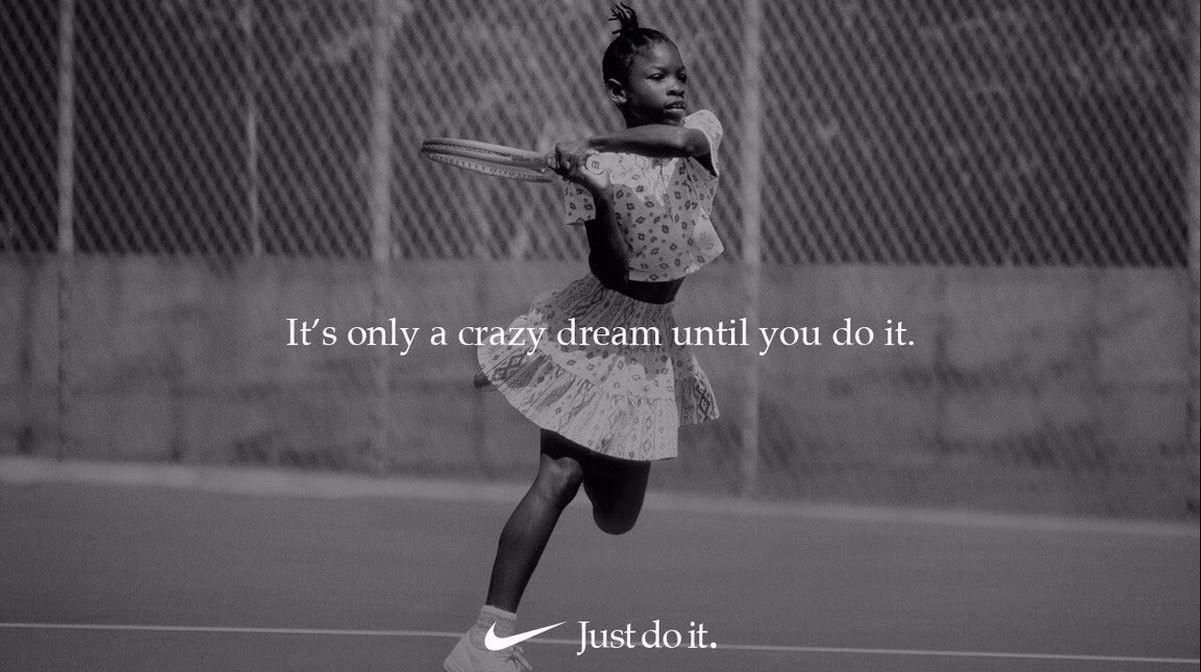Nike’s “Dream Crazier” focuses on female athletes
3 min read
Nike
By JOE LANGLEY
Staff Writer
In late February, Nike released their “Dream Crazier” commercial. The sequel to the initial “Dream Crazy” advertisement released by Nike last fall starring former NFL quarterback Colin Kaepernick, this commercial focuses more on empowering women in sports. The desire for equality of genders in sports has existed for decades, but until now no major company had used their platform to highlight the cause. The commercial contains cut scenes of the United States Women National Soccer team (USWNT), Serena Williams and various other female athletes who advocate for women worldwide to dream bigger.
Ryan Lopez, senior art major said, “The advertisement is effective in exhibiting overcoming odds. Attributions of respect and empowerment are underlying values as the video depicts pivotal moments in history. The powerful rhetoric, narrated by Serena Williams, adheres to the resistance towards history’s undermining perception a woman’s potential, leadership, skills and overall success in pursuing their dreams.”
Lopez highlights the main factor of the commercial, the need to establish equality between men and women in sports, and in the bigger picture, in overall society. This is a great effort by Nike to draw more attention to gender equality in sports. Serena Williams narrates this commercial, a well known juggernaut in the world of professional tennis, and she is the ideal voice representing female athletes worldwide.
Sophomore business major and member of the women’s club soccer team Delaney Campbell said, “I think it’s great that Nike chose to take an opportunity in this ad by shining a light on women and empowerment in sports, especially when sports for so long had often been seen as male dominant.”
Campbell and Lopez both voice similar opinions that gender should not determine success or ratings. Sports are for all who participate to enjoy to the fullest and be treated with equal and indisputable respect. The reality at hand is that this dream of gender equalization in sports should not be just a dream, but should be implemented into society. The most powerful line of the commercial uttered by Williams was “So if they want to call you crazy? Fine. Show them what crazy can do.”
Here Williams encourages women to glorify the characterization of women succeeding in sports as crazy, and to show the world what their athletic talent is at the highest level possible.
Junior communications major Alex Caldas also shared his thoughts on the revolutionary advertisement from Nike, saying “The fact that this type of unequal treatment still goes on in the collective world and the sports world is sad. In this day and age, if you are an athlete and put the blood, sweat and time into your passion you deserve respect regardless of your gender.”
Many believe that this commercial was for the better of society as a whole, and the platform obtained by Nike was the perfect outlet to broadcast this message. We all desire to become something bigger than ourselves and want to achieve as much success as possible; and gender should not be the deciding factor of that success.











